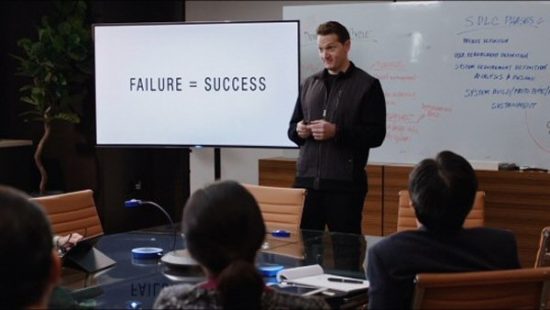This blog post was partly inspired by this story, where a business decided someone did not fit their corporate culture because she asked how much she would earn. Yup, let that sink in for a minute, and lets talk about the myths that a lot of tech startups perpetuate, that are complete and utter nonsense.
Myth #1: Forget your salary, its all about the exit strategy!
There is a myth that every ‘startup’ is the next facebook, or twitter, or snapchat. As a result, you should not give a damn how hard you have to work or what you earn. Living on peanuts and sleeping under your desk is frankly an honour, and you will get to write a book about it one day on your yacht, after the company IPOs and you get your share of ten billion dollars. Thats the myth. The likelihood is that you will either burn out long before then and have to quit, that your significant other will leave you and you will have a meltdown and get fired, or far, far more likely: it turns out that making a toaster that connects to the internet isn’t actually a billion dollar idea after all, the company burns through cash, crashes and burns and everyone gets a tweet informing them they are unemployed. In the idea is really good, it will raise some money, if it raises money, it can pay its workers.
Myth #2: We are the brightest and best in the world!
No you aren’t. You are probably a bunch of relatively well off middle class white guys from California who read a lot of books about steve jobs and now think you are a genius because you understand a bit of java. Whoopy do. Unless the company is Deep Mind, and a bunch of you have phds in artificial intelligence, or maybe quantum physics, and unless you have a few people with nobel prizes and fields medals, you are NOT the brightest and best. And frankly, that would be deeply embarrassing. if your startup does contain ten of the cleverest people on earth and you use those collective skills to develop a bluetooth enabled cat feeder…then what a terrible, insulting waste of your vast abilities. Get some fucking perspective.

Myth #3: Get users now, revenue will follow!
Really? Ask twitter how that went, or maybe myspace. Having a lot of users just means a lot of server costs and admin. The point of a business (and I feel it sad that anyone has to type this) is to make profit. Note that the word is profit, not revenue, which is totally different. Its amazing how many people think that a big userbase automatically generates revenue ‘somehow at some point’. Ask ANYONE in the games business if you can just bolt on Free-To-Play to an existing game, and they will laugh you out of the room. NO is the answer, you need to build that business model in right from the start. This is common sense, but companies like twitter and snapchat ignore it. Building a vast network of people who love your service because your service has no ads….yeah thats not going to be easy to monetize is it?

Myth #4: Our company is just like amazon. We will get big fast.
Well done, you have learned a buzz-phrase, and totally failed to understand the underlying business model. Amazons get big fast worked because they had an actual business model that they knew made a profit AT SCALE. Selling over the internet is highly profitable, and the economies of scale are vast. This does not apply to snapchat or instagram or twitter etc Amazons system had to be big because ‘every book in the world’ was compelling, and because books sold for MONEY. You can waffle all you like about how your business model has network effects, but unless there is a statement at the end of the company business model explaining where the profit comes from, its just a fortune cookie. The only thing that will get big fast is your debt.
Myth #5: We are making the world a better place.
Fuck you. Fuck you and the horse you rode in on. Do you know how a business can make the world a better place? by creating quality long term jobs that pay decent salaries and benefits. By contributing to the local community. By building things and solving problems that make society better. By paying their god-damn taxes. By setting an example of fair treatment to their employees, and ensuring a welcoming business environment for all races and genders and backgrounds. If your idea of making the world a better place is making billions of dollars so you can become another internet cliche with your bright orange Lamborghini and a swimming pool, then do us all a favour and just give up now.

Wow, that was angrier than I thought it would be. :D
I’m still shorting snapchat. YMMV. Pics are from the televisual genius of HBOs Silicon valley.